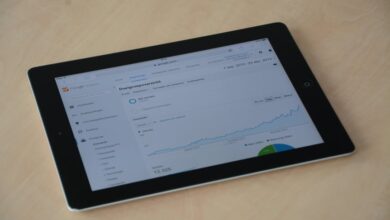Revolutionizing Your Bookkeeping Practices 4059009569

In an increasingly digital landscape, businesses must adapt their bookkeeping practices to remain competitive. Cloud-based accounting solutions offer enhanced accessibility and streamline financial operations. By automating invoicing and reconciliation, organizations can minimize errors and reallocate resources towards growth initiatives. Moreover, integrating data analytics into financial processes can provide critical insights for strategic decision-making. As industries evolve, the implementation of best practices in record-keeping becomes paramount—what strategies should be prioritized for optimal results?
Embracing Cloud-Based Accounting Solutions
How can businesses effectively streamline their financial processes in today’s digital age?
Embracing cloud-based accounting solutions offers a strategic advantage. By leveraging cloud security, companies ensure data protection while enhancing accessibility.
Furthermore, software integration facilitates seamless communication between financial applications, allowing for real-time updates and improved accuracy.
This innovative approach liberates organizations from traditional constraints, promoting efficiency and empowering them to focus on growth.
Automating Your Financial Processes
Many businesses are discovering the significant benefits of automating their financial processes to enhance efficiency and reduce human error.
By leveraging advanced financial software, organizations can achieve process optimization, streamlining tasks such as invoicing and reconciliation.
This transition not only liberates employees from mundane tasks but also allows for more strategic focus, ultimately fostering growth and innovation in a competitive landscape.
Utilizing Data Analytics for Informed Decision Making
Although traditional methods of financial analysis have served businesses well, the integration of data analytics into decision-making processes represents a transformative shift.
By leveraging data visualization and predictive analytics, organizations can uncover insights that drive strategic choices and enhance operational efficiency.
This approach empowers decision-makers, fostering a culture of informed actions that align with the pursuit of greater autonomy and financial freedom.
Implementing Best Practices for Record Keeping
Effective record-keeping is essential for any organization aiming to maintain financial integrity and operational transparency.
Implementing best practices, such as robust record retention policies and comprehensive audit trails, empowers businesses to safeguard their data.
These measures not only facilitate compliance with regulations but also enhance decision-making efficiency, ultimately fostering a culture of accountability and freedom within the organization.
Conclusion
In an era where efficiency is paramount, revolutionizing bookkeeping practices is not merely an option but a necessity for businesses aiming to thrive. By embracing cloud-based solutions and automation, organizations can transform tedious tasks into streamlined processes, paving the way for strategic growth. As the financial landscape becomes increasingly competitive, harnessing data analytics and adhering to best practices for record-keeping will not only ensure compliance but also empower decision-makers to navigate the future with confidence and clarity.



